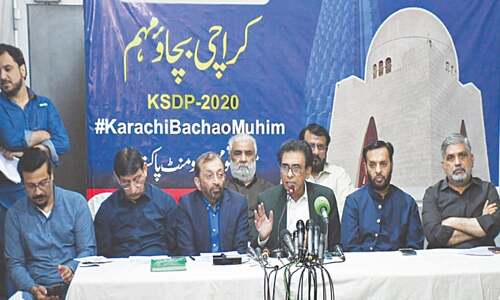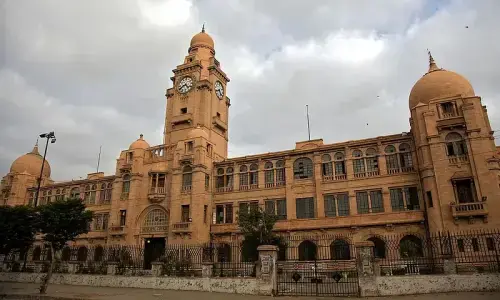KARACHI, March 2: An European Council's grant-in-aid to the tune of Euro 39 million (Rs2.886 billion) will be utilized mainly to strengthen the elementary education system in the province.
A policy meeting on utilization of Euro 39 million was held between an EC delegation and the Sindh Education Department on Wednesday. Among others, the Sindh education minister, Dr Hamida Khuhro, and EC Ambassador Illka Uusitalo attended the meeting.
The Sindh government is likely to receive the Euro 39 million grant from the EC in the beginning of the new fiscal year, said a source privy to the meeting. It was learnt that the meeting agreed to spend two-thirds of the grant on improving infrastructure and amenities of the existing primary and middle schools in the province, while the remaining amount would be utilized on developing databank of educational institutions, teachers training and mass awareness.
Focussing on educational reforms, particularly for the promotion of primary education in Sindh, the two sides agreed to strengthen the public sector education system, said an official communiqué.
During the meeting, Dr Hamida said the government realized the problems of out-of-school children, dropout ratio after primary classes, and lack of properly trained teachers, and it was why policy reforms had been initiated for reviving elementary education with the help of the federal government and various donor agencies.
The minister also referred to the gender disparity in provision of education, marked urban-rural differences, large number of shelterless schools and a good number of schools without basic facilities like boundary walls, toilets and drinking water.
She informed the delegation of measures already being taken by the government in regard to provision of quality education to students through public sector schools, involvement of school management committees in running the affairs of schools. She said that budgetary expenditures towards education were high in comparison with its development side.
Upon a query, the minister told the delegation that private schools existed largely in urban areas, and a few were of high standard, but were costlier. A majority lacked some facilities, she said.
The population in rural areas had to depend on public sector schools, as there were no privately managed schools, she added. The EC delegation, which was led by Ambassador Uusitalo, comprised Liam Owens, Peter Pertier and Bilquees Tahira, while Sindh Education Secretary Mohammad Hashim Leghari, Special Secretary Abdul Qadir Mangi and Additional Secretary Iqbal Ahmed Durrani assisted Dr Hamida.

































